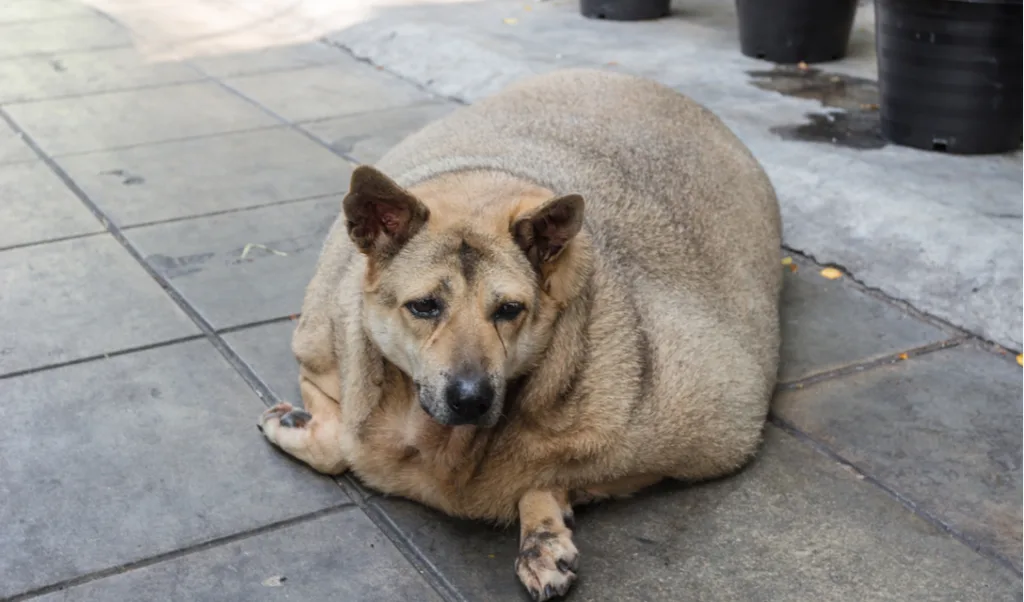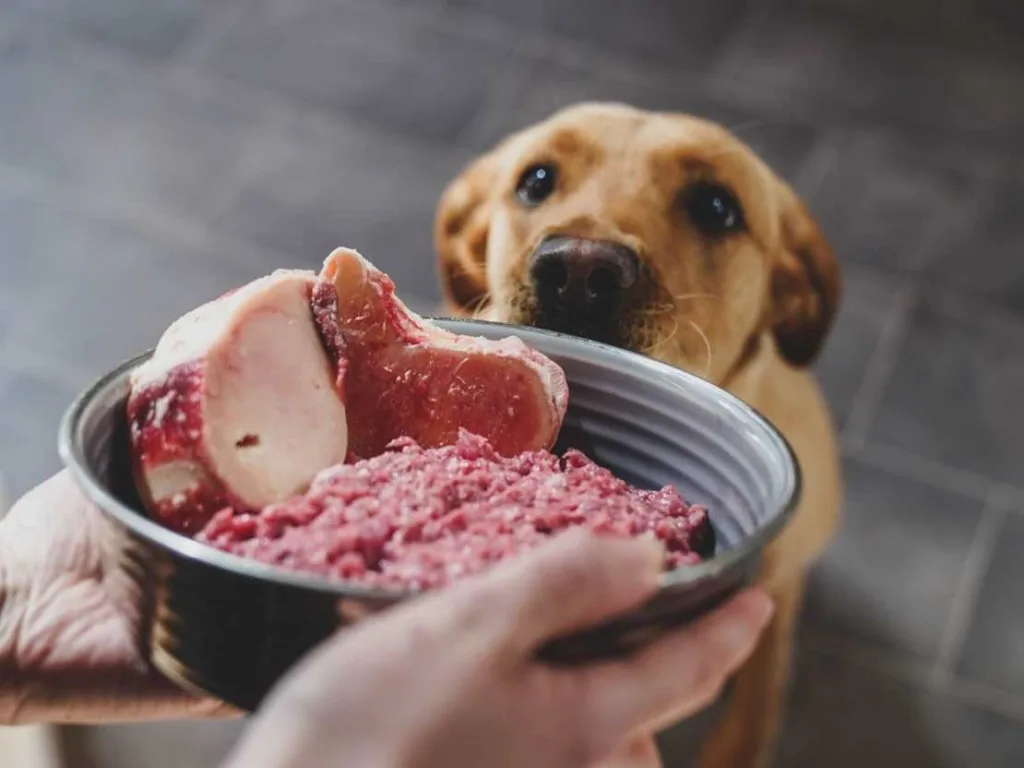Understanding Canine Obesity
Obesity, a pervasive issue affecting both humans and our loyal animal companions, poses a significant health threat to dogs. Sedentary lifestyles and poor eating habits are key factors that make dogs more susceptible to obesity. While a slightly overweight dog may seem harmless, it’s essential to recognize the gravity of this condition. In this article, we delve into the repercussions of canine obesity, including its causes, symptoms, and the imperative need for prevention and treatment.

The Weight Assessment Process
To ensure your dog’s overall health and well-being, understanding their weight is crucial. Assessing a dog’s weight involves several essential factors:
Visual Examination
Begin by visually assessing your dog’s physical condition. A healthy-weight dog should have a defined waist when viewed from above, and you should be able to feel their ribs beneath a slight layer of fat. If ribs are highly visible or challenging to locate, it could indicate underweight or obesity.
Body Condition Scoring
Utilize a body condition scoring system, typically ranging from 1 to 9, to evaluate your dog’s overall appearance. A higher score signifies obesity, and this system considers the palpability of ribs, spine, waist, and fat deposits in various areas. Consult a veterinarian for guidance on using this system effectively.
Breed, Age, and Activity Level
Take into account your dog’s breed, age, and activity level when assessing their weight. Different breeds have different body compositions, while puppies, young dogs, and senior dogs may exhibit unique weight characteristics. Understanding these nuances is essential.

Identifying Canine Obesity
Identifying obesity in dogs involves considering multiple factors related to their overall body condition:
- Rib Assessment: Run your hands gently over your dog’s rib cage; a healthy-weight dog should have ribs that can be felt beneath a slight layer of fat.
- Waist Observation: View your dog from above and check for a visible waistline between the ribcage and hips.
- Excess Fat Deposits: Look for fat deposits in specific areas, such as the neck, back, or hips, which may appear rounded or bulging.
- Energy Levels: Note changes in your dog’s energy levels and mobility, as obesity often leads to reduced stamina and exercise difficulties.
If these signs accompany weight gain, consult a veterinarian for a professional assessment and guidance on weight management.
Delving into the Causes
Dog obesity primarily results from an imbalance between calorie intake and energy expenditure. Several factors contribute to this imbalance, including:
- Overfeeding: Demonstrating affection through excessive treats and large portions.
- Lack of Exercise: Sedentary lifestyles and insufficient physical activity.
- Breed and Genetics: Some breeds are more prone to rapid weight gain, influenced by genetic factors.
- Age and Neutering: Older dogs and those spayed or neutered may gain weight due to slowed metabolisms.

Consequences of Obesity
Obesity in dogs carries a slew of detrimental effects, including an elevated risk of various medical conditions such as joint disorders, heart disease, respiratory problems, and diabetes. It can also shorten a dog’s lifespan, impair mobility, and affect their mental well-being and quality of life. Additionally, the financial burden of treating obesity-related health issues can be substantial.
Preventing and Treating Obesity
Canine obesity can be effectively prevented and treated using the following multifaceted strategy:
- Balanced Diet: Talk to a veterinarian to choose the right portion sizes. Select high-quality dog food suitable for your dog’s size, breed, and age.
- Controlled Feeding: Establish a regular feeding schedule with measured portions as well as limit treats to rewards for good behavior.
- Regular Exercise: Engage your dog in age-appropriate physical activities to burn calories as well as maintain a healthy weight.
- Veterinary Guidance: Schedule regular check-ups for monitoring weight and overall health. Your veterinarian can create a personalized diet and exercise plan.
- Behavioral Modification: Seek professional guidance if your dog’s overeating is due to behavioral issues.
Adjusting Your Dog’s Meals
Consult your veterinarian to determine your dog’s goal weight and calorie requirements before making dietary adjustments. Gradually reduce the food portions to avoid digestive issues. Consider switching to a premium, low-calorie dog food specifically designed for weight control. This may include high-fiber options as well as nutrient-rich vegetables.
Regular Check-ups Are Key
Routine veterinarian examinations are crucial, especially for overweight or obese dogs. These check-ups, recommended every three to six months. These involve assessing your dog’s weight, physical condition, and overall health. Working closely with your veterinarian as well as following their recommendations ensures your dog’s well-being and successful weight management.

In Conclusion
Canine obesity is a severe issue that demands attention. Understanding its causes, effects, and prevention methods is crucial for pet owners. By providing a balanced diet, regular exercise, as well as expert guidance, we can reduce the risks associated with obesity. Additionally, this can ensure our furry companions live longer, healthier lives. Remember, a healthy dog is a happy dog. If you have any questions or concerns please don’t hesitate to contact us!
Thank you for reading this post, don't forget to subscribe to our free newsletter
!